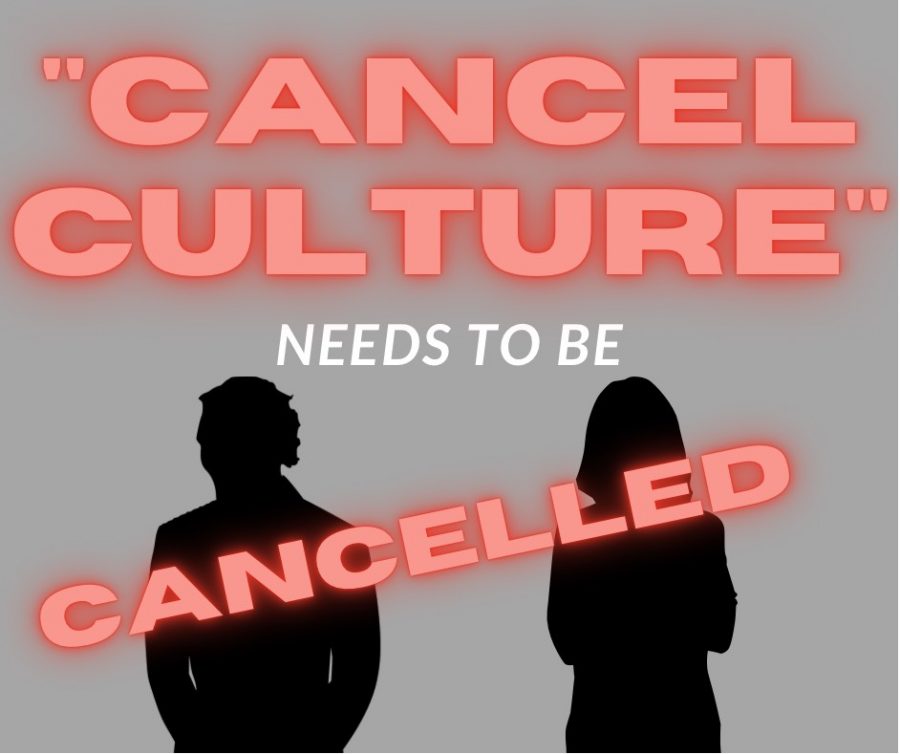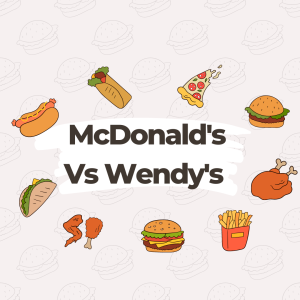“Cancel Culture” needs to be cancelled
April 30, 2021
Among a pandemic, a presidential election and civil rights activism, 2020 has also brought “cancel culture.” Social media platforms such as TikTok and Twitter have made this new phenomenon into the menace it is today. From classic movies to celebrities to brand names and mascots. Your favorite song or football team could be “canceled” next. Although “Cancel Culture” can help out a specific situation in some cases, it has also caused more harm than good.
Over the past few years, “cancel culture” has grown into what it is today and seemingly blossomed over lockdown when no one else had anything better to do. People took this time to take every negative or “offensive” thing a brand, celebrity or even social media influencer did to try and discredit them. Every day a new #cancelBLANK could be trending, or a brand could be removing their mascot.
With BLM and Presidential elections being the main focus of 2020, teens feel as if they need to be a part of the change, even when there is nothing to change at all. With teens being on social media almost all day, every day, they see a need to call out every minorly offensive thing there is. You could be scrolling through TikTok and seeing a harmless video of a girl complaining about not being tan enough, to open the comment section to read comments such as: “You’re black fishing” or “You’re white, stay that way.” So guess what? Tanning is canceled now too.
With platforms such as TikTok, anyone can become an “influencer.” But with this comes being held at an unrealistic standard. A 16-year-old could be “canceled” for a joke they made when they were only 14. Claire Drake was “canceled” twice, which goes to show how effective cancel culture really is, for a joke she made about the Holocaust. Although the Holocaust is a touchy subject, considering millions of people were killed, it doesn’t change the fact that she was still a kid. As you grow up, you make bad decisions, and you make jokes that seem funny but aren’t to everyone. But as you mature, you realize that and avoid doing the same thing again. However, publicly “canceling” teens do no good for you or them.
Additionally, you could be “canceled” just for sharing your opinion. During the heated 2020 presidential election, everyone was sharing their views on American politics. With most social media users leaning to the left, many took the opportunity to “cancel” republicans or even democrats who didn’t share the same opinion. Some would even go as far as doxxing whoever they disagreed with.
As this new movement gains traction, brands grasp on it only as a way to sell more products. Think about it, a beloved brand, mascot, movie, toy, show, whatever it is, as soon as they announce its soon departure, their products fly off the shelves. Ultimately this isn’t “cancel culture”; it’s performative activism. Because when it comes down to it, these corporate heads view this as a marketing strategy. They see the opportunity to please a growing tread. Companies pull their mildly offensive products to avoid the repercussions of angry Gen Z’ers posting on social media.









Rachel • May 5, 2021 at 9:30 am
Cancel culture has been around before 2020, “presidential elections”, and civil rights issues. It is toxic and can go to extremes but there are certain things that have to be held accountable. Everyone is human and makes mistakes and they need to learn from them. Some jokes are overall not jokes at all. The holocaust is not funny. Racism is not funny. No one deserves to be shunned off the internet and doxxed. Cancel culture is wrong, but some things need to be held accountable.